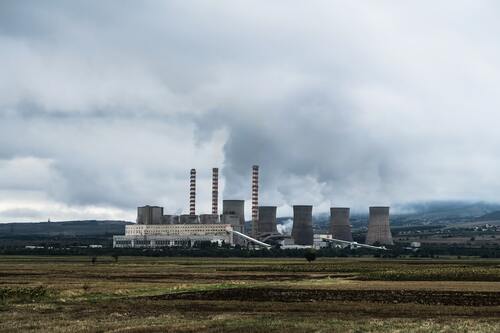Table of Contents
Nuclear engineering can turn out to be a rewarding career for those who are ready to put theoretical ideas into practice.
These ideas can be well implemented to help people build nuclear weapons, nuclear power plants, nuclear reactors, and other projects in the related field.
Nuclear engineers work on the procedures, tools, and systems that are used to extract advantages from nuclear energy and radiation. If you think this is the ideal position for you? Check out the blog to know how nuclear engineering can help you as a career.
Specialization
You might choose to specialize in a certain field of nuclear engineering. For example, nuclear reactors require constant management and maintenance, therefore you may pursue a career as a Reactor Operator.
Some reactors are cooled with water systems, which might lead to a career as a specialist hydraulic engineer.
Some of the specialties in the nuclear engineering field include –
- Hydraulic engineer
- Health and safety specialist
- Instrumentation and control engineer
- Process engineer
- Project manager
- Quality engineer
Skills

There is a lot more required than technical skills for nuclear engineers to be successful at their job. We’ve listed some of these skills below –
- Mathematical and computing skills
- Critical thinking and problem solving
- Excellent organizational and planning capabilities
- Management and leadership skills
- Excellent verbal and written communication
- Ability to work within a team
Admission requirements
Each nuclear engineering program sets its entrance requirements. Here are the basic criteria required for the admission process to a nuclear engineering program –
- The minimal fundamental requirement for bachelor’s degree programs in nuclear engineering is 10+2, including subjects such as chemistry, physics, algebra, trigonometry, and calculus as key topics. You are also required to have passed the relevant entrance exams.
- A bachelor’s degree in any related discipline of engineering is required for admission to a master’s degree program. For colleges in other countries, valid GMAT, GRE, or MAT scores, as well as SAT or ACT scores, are necessary
- Language proficiency test scores in exams such as IELTS or TOEFL are also important.
- Aside from them, you’ll need to submit a Statement of Purpose and letter of recommendation.
- A minimum cumulative GPA of 3.0 in high school along with a FAFSA (Free Application for Federal Student Aid)
List of nuclear engineering bachelors courses
Nuclear engineers must have a bachelor’s degree in nuclear engineering to begin their careers in the field. The nuclear engineering bachelor’s courses are as follows –
- BSc in Nuclear and Risk Engineering
- Specialty Nuclear Reactors and Materials
- BSc in Nuclear Engineering
List of nuclear engineering master’s courses
After the completion of a bachelor’s degree, you can opt for a master’s degree to enhance your knowledge and get an edge over the other candidates. Master’s courses can also allow you to specialize in a specific area. M.Sc nuclear engineering courses are as follows –
- Nuclear Engineering – Advanced Nuclear Waste Management
- MSc in Radioecology
- Science of Nuclear Fusion
- Nuclear Fusion and Engineering Physics
- MSc in Nuclear Engineering
- Nuclear Power Engineering
- Master of Science in Nuclear Engineering
Scope of nuclear engineering

Those with a bachelor’s degree in nuclear engineering can work for a variety of government agencies at all levels, national laboratories, companies that design and sell medical equipment and nuclear steam supply systems, engineering and construction firms, consulting service firms, and the electric utility industry and its related organizations. You can also look for work in the fields of health & medical research, transportation, and food & water safety. Appropriate experience and further studies lead to greater work opportunities in the fields of teaching and research in a variety of Indian and international organizations and laboratories. In addition, nuclear engineers can pursue a career in management or administration.
Best nuclear engineering colleges in the world
- Air Force Institute of Technology (U.S)
- Georgia Institute of Technology (U.S)
- Lancaster University (U.K)
- Massachusetts Institute of Technology (U.S)
- University of Birmingham (U.K)
- McMaster University, Hamilton (Canada)
What we have to say
Nuclear energy is steadily emerging as one of the key energy sources after years of study and studies. The demand for skilled nuclear engineers is on a high rise.
We can already witness a growth in the utilization of nuclear energy at a higher pace. Learning nuclear engineering, on the other hand, does not restrict your prospects to this field alone. You will work in radiology and radiology equipment maintenance and other related fields.
Working in these fields would provide you with a plethora of possibilities and prospects.
Liked the blog? Comment below and share your thoughts with us!
Liked this blog? Read next: Engineering Physics | Deep Insights about the Course
FAQ’s
Q1. Which entrance exams are required to be cleared for nuclear engineering?
Answer – You can clear any of the following entrance exams to be eligible to opt for a course –
- JEE Main
- JEE Advanced
- BIT SAT
- SRMJEEE
Q2. Which countries offer the most promising scope for nuclear engineering?
Answer – The following countries offer the most promising scope –
- The USA
- The UK
- Russia
- Hungary
- Romania
- Japan
- China
Q3. How many hours does a nuclear engineer work?
Answer – Nuclear engineers usually work more than 40 hours a week.






